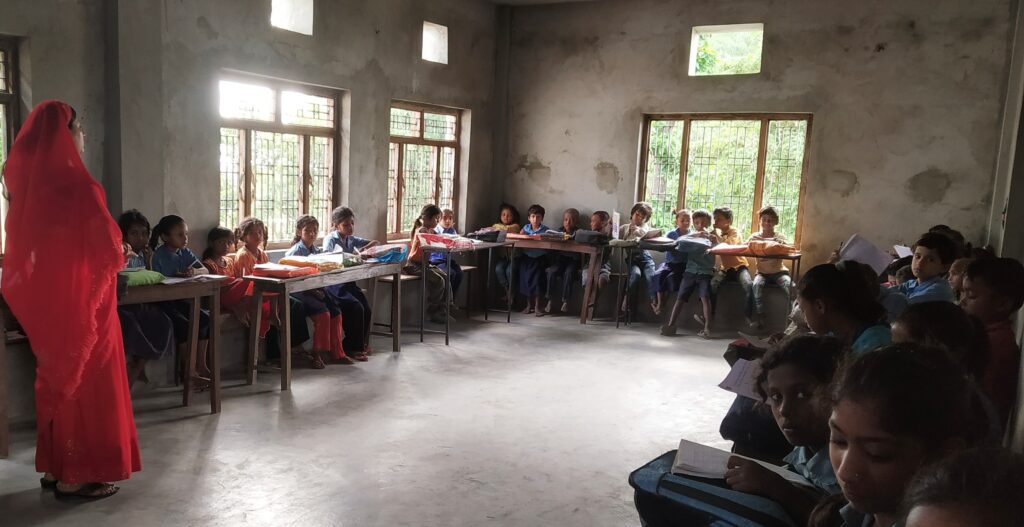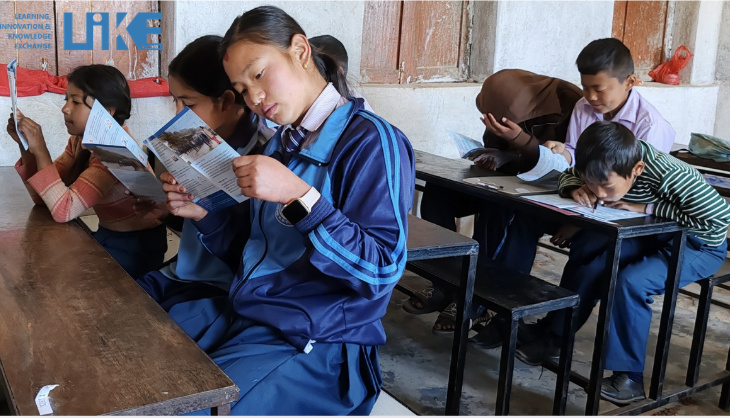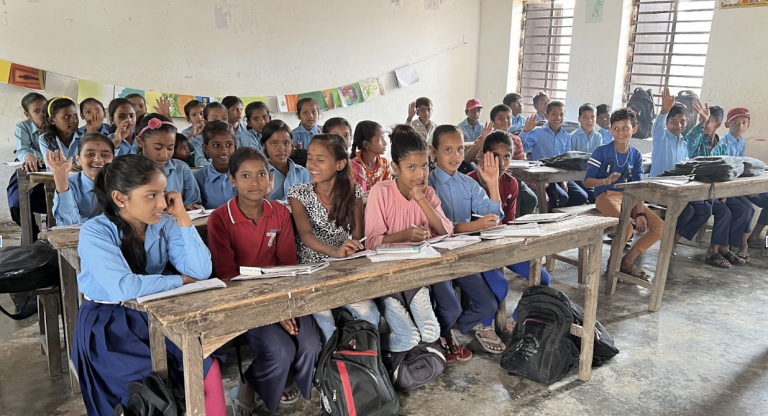
Author: Regina Rajbanshi
Many children view education as an opportunity to learn new things, acquire knowledge, and develop skills. They may be excited about exploring different subjects, engaging in hands-on activities, and expanding their understanding of the world (Clayton & Forton, 2001). Hence, education can be seen as a foundational capability that enhances and supports the development of other capabilities. It plays a pivotal role in shaping children’s futures, fostering their growth, and empowering them to become well-rounded individuals (Barnikis, 2015).
How do children perceive education and its role in helping them achieve their life goals? To explore the answer to this research question, a field visit was scheduled for May 2023. During the field visit, a Focus Group Discussion (FGD) was conducted in 5 schools of Yamunamai Rural Municipality (YRM), 3 schools of Durgabhagwati Rural Municipality (DRM), and 1 school of Rajdevi Municipality of Rautahat district, Nepal. A group of 24 students, 12 girls and 12 boys, from grades 3 to 8, were asked to share their experiences and perceptions of Education. It was a part of the research project “Effectiveness and Scalability of Programs for Children Who Are Out of School and at Risk of Dropping Out in Bangladesh, Bhutan, and Nepal,” supported by Global Partner for Education Knowledge & Innovation Exchange (GPEKIX) and International Development Research Center (IDRC).
From the FGD, it was clear that the children have an innate curiosity for learning and a thirst for knowledge. They perceive education as a means to explore and discover, which fosters a lifelong love for learning. The children specified that education plays a great role in their future and will unleash their potential in the job market. According to the children, coming to school provided them with the opportunity to interact with their peers, fostering their social capabilities. Regarding this issue, the children expressed, “Coming to school is a delight, as it allows us to engage in fun-filled playtime, engage in meaningful conversations, and cultivate cherished friendships, making each day a joyful and fulfilling experience.” Students indicated that they had a chance to meet and build relationships with peers from diverse backgrounds, which can be seen as a positive aspect of their educational experience. In addition, they expressed the belief that education holds significant value in attaining positive outcomes in the future. They view education as a stepping stone to pursue specific careers or dreams they have.
Similarly, during the interactions, one of the students also stated, “To achieve my dream of becoming a doctor, I am driven to pursue a comprehensive education that will equip me with the knowledge and skills necessary to excel in the medical field and make a positive impact on the lives of others.” Students also mentioned that obtaining an education would make their parents proud and contribute to their happiness by achieving their desired future lifestyles. They said, we strongly believe that obtaining an education is a significant factor in making my parents proud and contributing to their happiness. I see education as a means to not only achieve my own dreams but also fulfill their aspirations for me. Whenever I excel in my studies or achieve academic milestones, I can sense the joy and pride in my parents’ eyes, and that feeling is truly gratifying.” Furthermore, they highlighted that education serves as a guiding force, leading them toward the right path. The children expressed that obtaining an education is beneficial for them, and they aspire to become remarkable individuals with a desire to make a positive impact on others.
Children, especially girls, said that education equips them to become financially independent in the future. This independence provides them with greater agency and decision-making power, reducing their reliance on others, including their husbands and in-laws. They further added that “Education raises awareness among them about their fundamental rights, including their right to autonomy, dignity, and equality“.
The few children also had a perception that education was a source of academic pressure. They felt overwhelmed by heavy workloads, high expectations, and the need to perform well in exams. In this issue, one respondent stated, “My parents put pressure on me to pursue a first position in class, due to which I start worrying too much when exams are near“.
Overall, it was evident that children recognize education as a foundational capability that not only fosters their love for learning but also empowers them to pursue diverse life goals and future careers. The children expressed a strong belief that education equips them with the knowledge and skills necessary to excel in their chosen fields, as well as to make a positive impact on the lives of others. It also instills in them a sense of pride and happiness, contributing to their aspirations and desired lifestyles. Moreover, education was seen as a means of financial independence, particularly for girls, empowering them with agency, decision-making power, and awareness of their fundamental rights. However, it is essential to acknowledge that some children also expressed feelings of academic pressure, driven by high expectations and the need to perform well in exams. This highlights the importance of creating a supportive learning environment that encourages growth and development while addressing the challenges associated with academic stress.



